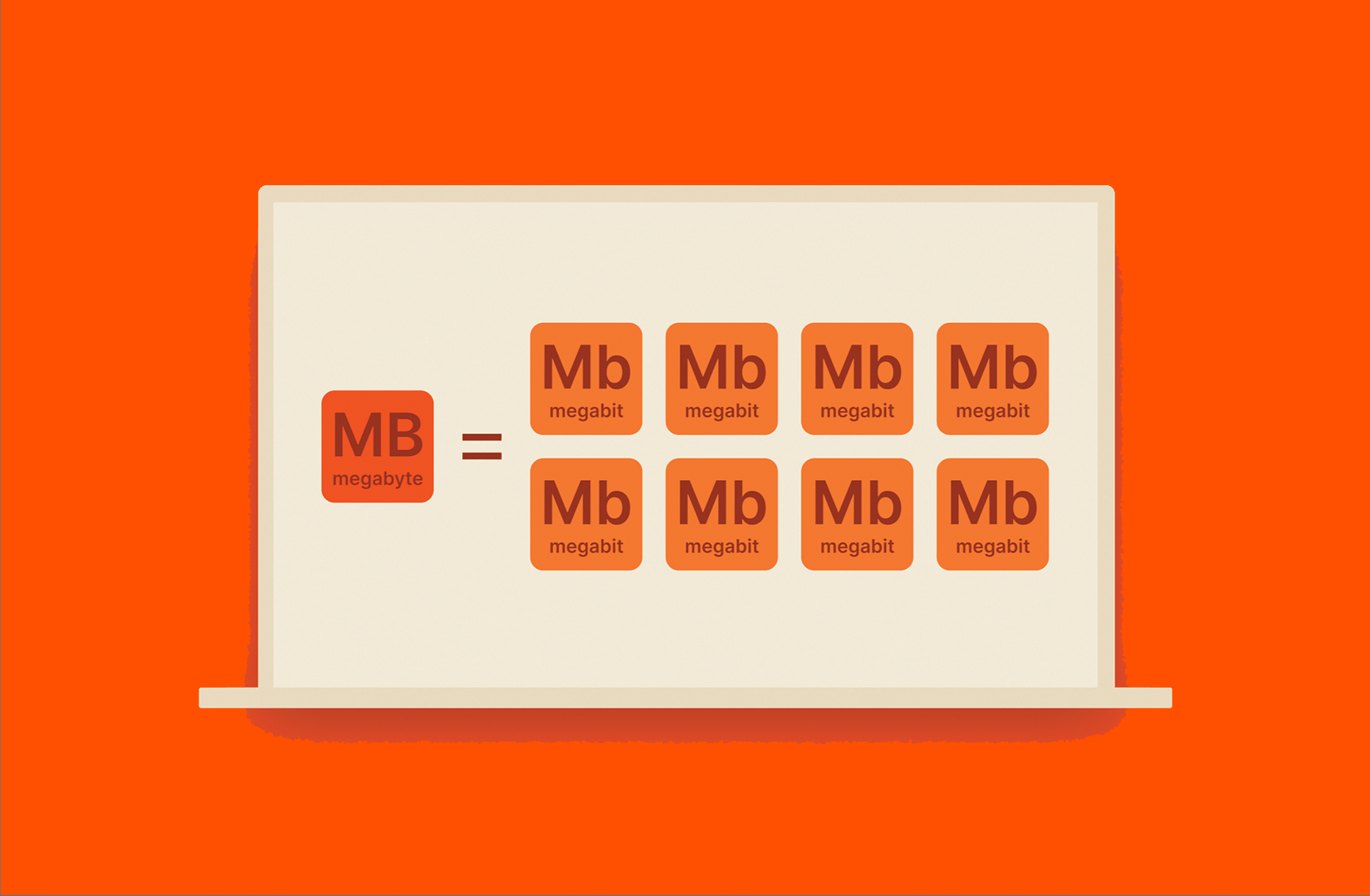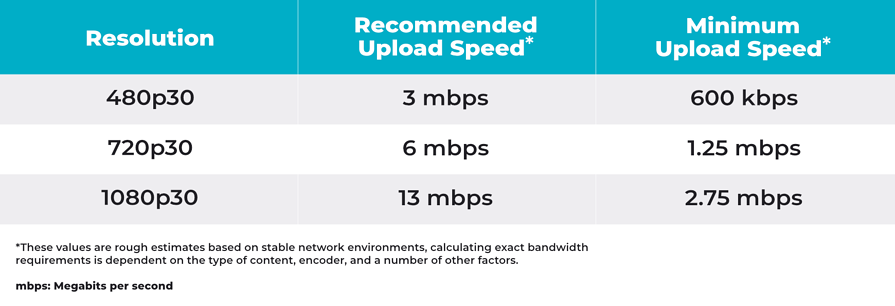Understanding Just How Megabits Per Second Affect Your Internet Experience
Understanding Just How Megabits Per Second Affect Your Internet Experience
Blog Article
How Megabits Per Second Effect Your Online Tasks
The concept of megabits per second (Mbps) plays a pivotal function fit our on the internet experiences. As digital activities proliferate, understanding the ramifications of Mbps on streaming, video clip, and video gaming conferencing ends up being increasingly crucial. Higher Mbps can improve efficiency and decrease interruptions, while poor rates might cultivate disappointment and inefficiency. Analyzing your home's specific demands in relationship to these rates is crucial, specifically as multiple gadgets try data transfer. Yet, the nuances of exactly how Mbps impacts different online tasks require further exploration, especially as our reliance on electronic connection remains to advance.
Recognizing Megabits Per Second
When thinking about internet rate, it's important to comprehend the principle of megabits per second (Mbps), which serves as a standard measurement for data transfer rates. This statistics measures just how much information can be transferred over a web link in one second, providing a clear understanding of performance capabilities - Megabits Per Second. For context, one megabit is equivalent to one million bits, and Mbps is commonly used to express bandwidth for different on the internet tasks
A greater Mbps suggests a much faster internet link, making it possible for customers to do tasks such as downloading documents, browsing internet sites, and participating in online pc gaming more effectively. Typical browsing requires around 1-5 Mbps, while streaming high-def video clip may demand 5-25 Mbps. Comprehending these requirements is essential for figuring out the suitable web rate required for details activities.
In addition, the variety of devices connected to a network can impact total efficiency. Multiple customers streaming, gaming, or downloading concurrently can stress offered bandwidth, resulting in slower rates - Megabits Per Second. Assessing individual online practices and demands is crucial in picking an internet strategy that aligns with one's demands, making sure a smooth digital experience
Streaming and Buffering Issues
Streaming high-definition material has ended up being a staple of modern-day online entertainment, yet it is usually accompanied by annoying buffering problems. These disturbances can dramatically diminish the viewing experience, causing frustration and potential loss of target market involvement. Buffering occurs when the information transferred from the streaming service is not received swiftly enough to maintain a smooth playback, often due to insufficient net speed determined in megabits per second (Mbps)

Moreover, real-time streaming can be impacted by network blockage, which occurs when several gadgets share the very same transmission capacity. Optimizing link rate and making sure appropriate Mbps is important for a seamless streaming experience. As streaming solutions remain to develop, recognizing the effect of Mbps on buffering problems remains crucial for customers seeking nonstop home entertainment.
Online Gaming Performance
The influence of net rate on online activities prolongs beyond streaming, dramatically influencing online video gaming performance. In competitive gaming, low latency and high data transfer are vital for a seamless experience. A fast connection decreases lag, permitting players to respond swiftly to in-game occasions, which can be the distinction between victory and loss.
Transmission capacity, gauged in megabits per second (Mbps), plays a vital function in sustaining several gadgets and video gaming systems at the same time. Insufficient data transfer can result in went down connections or decreased video game top quality, negatively affecting gameplay. For example, online multiplayer games call for significant information transfer, especially during peak video gaming hours when numerous gamers are online.
Additionally, the sort of game can also dictate the required net speed. Fast-paced first-person shooters demand greater speeds to keep responsiveness, while turn-based strategy games might operate reasonably well on reduced rates. As on-line pc gaming remains to develop, with raising graphical fidelity and even more intricate multiplayer environments, the need for greater Mbps will just magnify. As a result, players ought to ensure they have sufficient net rate to boost their pc gaming efficiency and total experience. Purchasing a durable net link is crucial for players seeking to enhance their efficiency and satisfaction.
Video Clip Conferencing High Quality
In today's digital landscape, video clip conferencing high quality is greatly influenced by web rate, particularly in regards to data transfer and latency. High-grade video calls require enough bandwidth to send sound and video information perfectly. Typically, a minimum of 1.5 Mbps upload and download rates is recommended for typical meaning video clip, while high-definition video clip conferencing usually requires at the very least 3 Mbps.
Latency, or the delay in between sending and getting data, likewise plays an essential duty in the individual experience. Greater latency can lead to resemble, lag, and disjointed communications, which can hinder collaboration and involvement throughout meetings.
In addition, multiple participants in a video conference can stress available bandwidth, demanding even greater speeds. Network congestion, usually triggered by simultaneous activities like streaming or downloading, can further deteriorate video high quality. Thus, for companies depending on video conferencing for remote partnership, recognizing the partnership in between megabits per total and second interaction high quality is essential for my review here preserving efficiency and boosting virtual interactions.
Choosing the Right Internet Plan
Selecting an ideal net plan is essential for ensuring optimal performance in different online tasks, especially in settings that require high transmission capacity, such as video clip conferencing and online pc gaming. Megabits Per Second. When thinking about a web strategy, it is important to examine both you can find out more the rate and information allowance to match your specific usage needs
For houses with multiple customers taking part in simultaneous tasks, a strategy providing higher megabits per second (Mbps) is advised. Commonly, a minimum of 25 Mbps is ideal for typical streaming and surfing, while plans going beyond 100 Mbps are preferable for even more intensive tasks. Additionally, take into consideration the nature of your online activities; video conferencing needs at the very least 1.5 Mbps publish speed, while online pc gaming may require a reduced latency yet consistent connection.
Endless data strategies can stop throttling and disruptions, specifically if heavy usage is expected. By attentively choosing a net plan tailored to your needs, you can boost your on-line experience, guaranteeing smooth, uninterrupted accessibility to your recommended activities.
Conclusion
Finally, the relevance of megabits per second (Mbps) fit on the internet tasks can not be overemphasized. Higher Mbps facilitates smooth streaming, decreases buffering, boosts gaming experiences, and guarantees high-grade video conferencing. Conversely, insufficient bandwidth can cause aggravating disturbances and reduced efficiency across various jobs. For that reason, a complete understanding of private or home discover here Mbps requirements is necessary for selecting an appropriate internet plan that sufficiently sustains diverse online tasks and customer demands.

Typically, a minimum of 25 Mbps is ideal for common streaming and surfing, while strategies surpassing 100 Mbps are more effective for more intensive tasks. Additionally, consider the nature of your online activities; video conferencing requires at the very least 1.5 Mbps upload speed, while on-line pc gaming may require a reduced latency yet consistent connection.
Report this page